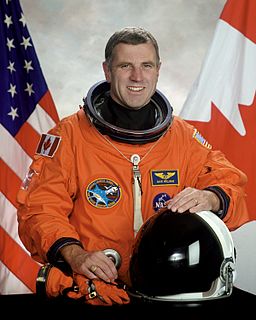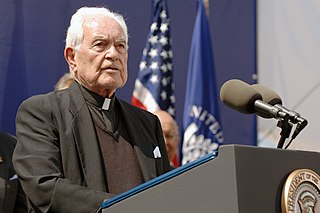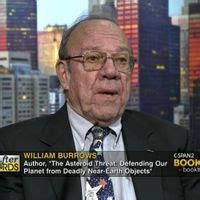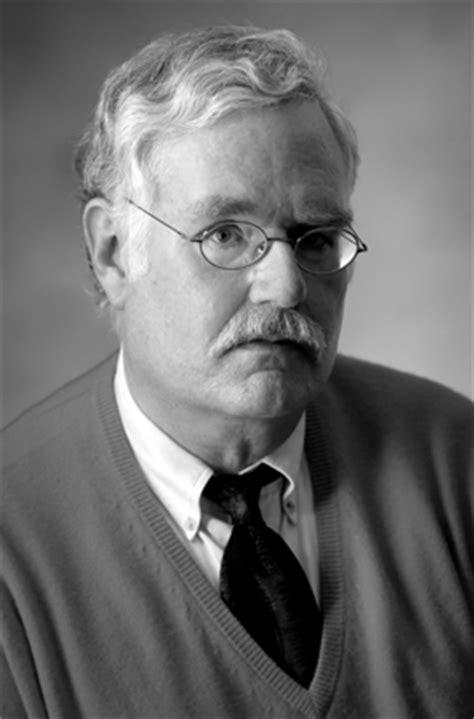A Quote by Anousheh Ansari
One of the most memorable moments was when I first saw earth because I had seen many pictures, many videos of earth from space, and being able to see that with my own eyes had a completely different effect, and sort of almost sensing life emanating from our planet in the dark background of the space, it was a really memorable experience.
Related Quotes
I wasn't frightened going to outer space. I'd been living this in my head for many, many years, so I sort of had played all of these scenarios of flying into space and seeing earth. I think I was very prepared for it. It was almost a completely joyful, very happy, very exciting experience, and I didn't have time or any desire to think about what things could go wrong.
On my second space walk, I was riding the Canadarm, heading down toward the payload bay of the space shuttle, and I could see the space shuttle highlighted against the Earth in the background, and there was this black, infinite, hostile void of space. I remember looking down at the Earth and thinking, "Beneath me is a 4½-billion-year-old planet, upon which the entire history of the human species has taken place." That was an incredibly humbling moment, and I had a bit of an epiphany.
Flying has changed how we imagine our planet, which we have seen whole from space, so that even the farthest nations are ecological neighbors. It has changed our ideas about time. When you can gird the earth at 1,000 m.p.h., how can you endure the tardiness of a plumber? Most of all, flying has changed our sense of our body, the personal space in which we live, now elastic and swift. I could be in Bombay for afternoon tea if I wished. My body isn't limited by its own weaknesses; it can rush through space.
To be able to rise from the earth; to be able, from a station in outer space, to see the relationship of the planet earth to other planets; to be able to contemplate the billions of factors in precise and beautiful combination that make human existence possible; to be able to dwell on an encounter of the human brain and spirit with the universe
The most striking thing to me about human space flight and my own personal experience is that I've seen dramatic changes on Earth. We humans are rapidly changing the planet. I've watched Amazonia as the rainforest has been cut down. That's something I've seen out the window. I'm very worried about that.
If the human species, or indeed any part of the biosphere, is to continue to survive, it must eventually leave the Earth and colonize space. For the simple fact of the matter is, the planet Earth is doomed... Let us follow many environmentalists and regard the Earth as Gaia, the mother of all life (which indeed she is). Gaia, like all mothers, is not immortal. She is going to die. But her line of descent might be immortal. . . . Gaia's children might never die out-provided they move into space. The Earth should be regarded as the womb of life-but one cannot remain in the womb forever.
Many people may not recognize that the development of space exploration technologies has already helped benefit Earth in many ways, especially when it comes to communications, Earth observation and even fostering economic growth. Space technologies are surprisingly critical in impacting government, industry and personal daily decision-making.
It changes your perspective to be able to look out the window and see the planet. One of the thoughts that I had when I first got up here was, 'We really do live on a planet, and we are in a solar system, and we are flying through space right now.' I mean, this is something that you know, obviously, but to see the planet - it's amazing.


































